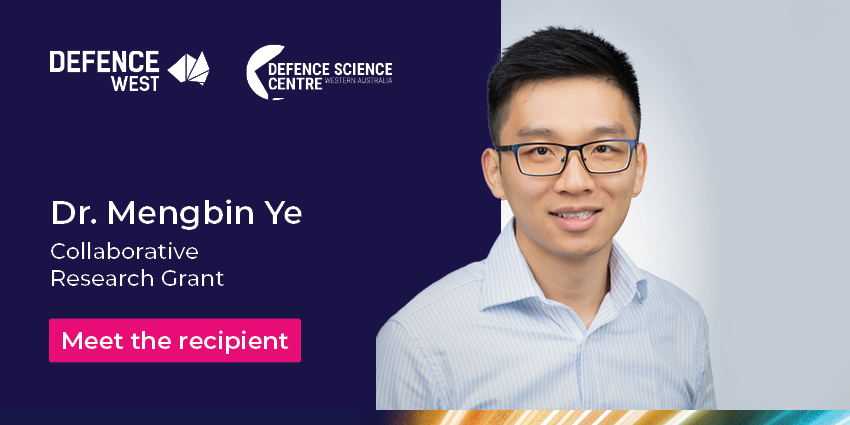
Dr. Mengbin Ye, a Western Australian researcher, leads pioneering interdisciplinary research that integrates artificial intelligence (AI), mathematics and social science. After commencing the Western Australian Premier’s Early-Mid Career Fellowship in April 2021, Dr. Ye has made significant contributions to research in Western Australia (WA). His work in mathematical modelling focuses on how opinions and information spread through social networks, helping to predict how new ideas and behaviours emerge and evolve in complex socio-technical systems. This research is important in supporting national security and societal stability.
In 2022, Dr. Ye secured a Collaborative Research Grant (CRG) funded through the Defence Science Centre at Department of Jobs, Tourism, Science and Innovation (JTSI) to support his project, 'Psychologically-Informed Mathematical Modelling of Misinformation Spread.' This multidisciplinary project brought together mathematics and social psychologist researchers from Curtin University, the University of Western Australia and the Defence Science and Technology Group.
The project achieved two key outcomes:
- Dr. Ye and his team developed an integrated theory that uses psychological experiments with online participants to test and validate mathematical models of misinformation spread.
- They discovered that many existing models rely on assumptions that experimental data do not support, suggesting future work should focus on the development of new and improved models.
Through this project, Dr. Ye established a WA-based research team with complementary expertise in experimental and social psychology and mathematical modelling. The team also recruited and trained a Research Associate, positioning themselves for further funding opportunities and new projects in Information Warfare.
Dr. Ye is continuing this work and success by securing prestigious national grants. Dr. Ye’s collaboration with social psychologists and data scientists at Flinders University, Monash University, and the University of Queensland, has secured funding from the Office of National Intelligence through a National Intelligence and Security Discovery Research Grant (2024). This project seeks to identify how misbeliefs can become an ingrained part of a group’s social identity and open up pathways to more extreme and illiberal movements. This project will provide crucial insights for policymakers and help safeguard Australia’s national security against emerging threats.
Dr Ye were recently awarded the Australian Research Council Discovery Early Career Researcher Award (DECRA) for 2025. Dr Ye will use this project to develop more advanced mathematical models to understand how misinformation spreads in social media environments, driven by social and cognitive biases. A key aim is to identify strategies that can secure Australia’s information environment and bolster national capabilities in Information Warfare.
Dr. Ye’s success demonstrates how the Defence Science Centre builds lasting collaborations between the defence industry and academia involving multiple scientific disciplines across Australia.
“The CRG provided invaluable initial momentum and resources. Essentially, the CRG allowed me to build up several ideas and results that directly contributed to the DECRA and NISDRG projects.”
This case study highlights the importance of the WA government funding and the CRG in enabling local researchers to get more success from federal grant sources. By investing in defence research, as shown by Dr. Ye’s work, Western Australia strengthens its ability to tackle future challenges. This investment delivers long-term benefits, including enhanced national security, training of the next generation of scientists, improved public awareness and valuable expertise for policymakers.


